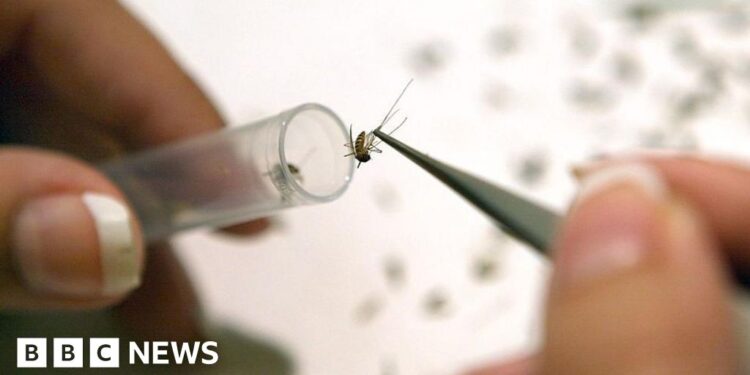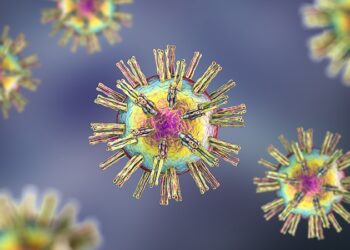West Nile virus has been detected in UK mosquitoes for the first time, the UK Health Security Agency (UKHSA) said.
It added that the risk to the general public is “very low” but advice to healthcare professionals will be issued.
West Nile virus causes either very minor symptoms or none at all – but around 20% of cases can experience headaches, high fever and skin eruptions.
Currently, there is no evidence to suggest the ongoing circulation of the virus in birds or mosquitos in the UK, the health agency said.
There have been no cases of West Nile virus in humans acquired in the UK to date – though there have been seven travel-related cases since 2000.
West Nile virus is endemic in several regions across the world, including parts of South America and Europe, and has expanded in recent years.
A research programme by the UKHSA and the Animal and Plant Health Agency (APHA) found fragments of the virus in mosquitoes collected in Britain in 2023.
“While this is the first detection of West Nile Virus in mosquitoes in the UK so far, it is not unexpected as the virus is already widespread in Europe,” said Dr Meera Chand, a deputy director for travel health and infections at UKHSA.
Dr Arran Folly, the lead of the project which found the virus, said its detection is part of a “wider changing landscape, where, in the wake of climate change mosquito-borne diseases are expanding to new areas.”
While the Aedes vexans mosquito is native to Britain, he added that warming temperatures may bring non-native species to the UK and, with them, the potential of infectious disease.
Last year, protests were held in Seville, Spain, after the death of five people infected with the disease.
The mosquito is often found in wet areas. Experts recommend getting rid of standing water sources – where they breed – and taking personal measures such as using mosquito repellent and bed nets.
Source link : https://www.bbc.com/news/articles/c77115e0645o
Author :
Publish date : 2025-05-21 10:27:00
Copyright for syndicated content belongs to the linked Source.














